
Gatekeepers have always served a crucial function, albeit a function we (readers) might not have paid much attention to until recently.
I liken gatekeepers to dams. Manmade dams serve multiple functions. They keep the good contained (e.g. robust populations of fish), and they also give us a way to control water flow and prevent disaster.
In Texas, we get a LOT of flash floods.
Rainstorms almost always hit hard and fast—too fast for the ground to have time to absorb all the water. Flash-flooding can do tremendous damage…which is why we build dams.
When a storm hits and dumps six inches of rain in a half hour, the lakes and rivers rise at terrifying speeds.
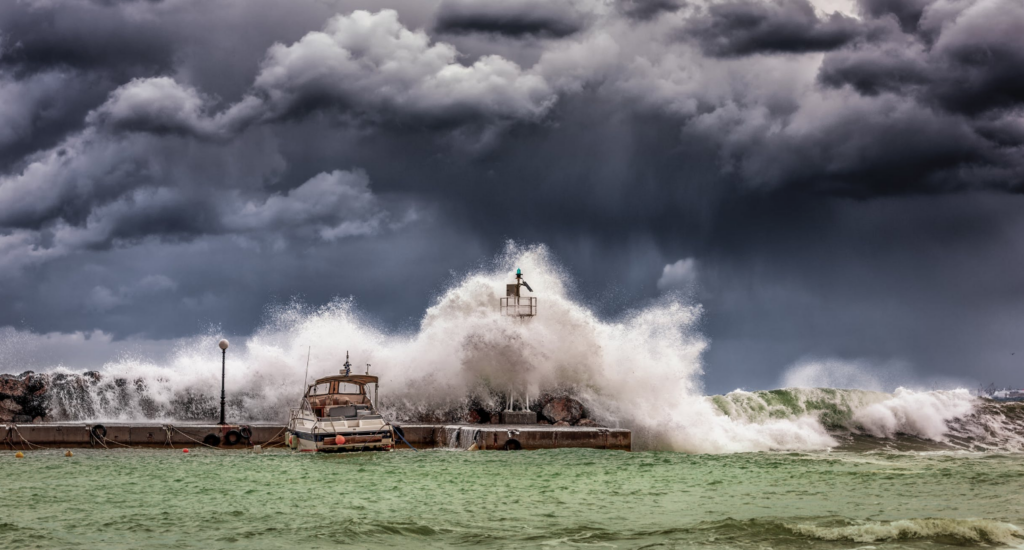
The dam is what keeps that water contained until it hits a dangerous level. At that critical point, the dam starts slowly releasing so many millions of gallons of water into special canals and floodplains to prevent the lakes and rivers from breaking their banks (or the dam).
Without a dam, the lakes and rivers could rage out of control and wipe out everything nearby—homes, businesses, animal habitats, etc.
Gatekeepers Contain the Good

I spent most of my youth—and my babysitting money—in a B.Dalton or a Waldenbooks. Back then, I had no idea how much I took for granted.
Sure, I ran into my fair share of bad books, but bad books back then meant something entirely different.
A ‘bad book’ in 1987 was one that didn’t resonate, or, for some reason, failed to hook my interest. Maybe the characters were too shallow or the plot was too predictable. I might have put a book down because I didn’t care for the voice or style.
All that time, a book being ‘good’ or ‘bad’ was almost always wholly a subjective construct, a matter of opinion.
Thanks to gatekeepers, I never had to quit reading because a book had so many typos I couldn’t concentrate. I never once gave up on a book because the horrendous grammar made my brain bleed.
If I read a mystery, I could expect the story to possess an actual mystery plot (structure).
Bad thing happens–> MC gets involved–> clues here–>red herrings here–> ends with mystery solved.
I couldn’t have imagined I’d one day pick up a mystery written by an author who didn’t even know mystery possessed its own unique structure (yes, that has happened).
Authors understood genres and knew where their stories would fit and why and the standard expectations from readers. Today?
*weeping sounds*
The Modern ‘Bad Book‘

The digital age changed everything. And before anyone shouts me down, I believe self-publishing has done a lot of good.
The problem, however, is we may have hit a point that self-publishing could start doing irreparable harm to our industry. A bad book from 1999 is not the same creature as the bad book of 2019.
Gatekeepers caged the bad book in 1999 and put it down before it could bite anyone, unlike the bad book of 2019.
Nope, that sucker’s laying eggs.
It’s a series.
To put it bluntly, it’s always been an uphill battle to get people excited about reading.
In an age with texting, social media, video games, YouTube, Candy Crush, and Netflix, it’s possibly harder than ever.
But, here’s some food for thought.
Twenty years ago, teachers, librarians, publishers, authors and readers bemoaned how people didn’t read. Yet, when I was a kid almost ALL the books in stores and libraries had passed the gauntlets of the gatekeepers.
Think about it. Publishing had to hustle and pray for readers even when the pool of books to choose from had all been thoroughly edited, proofed and vetted.
Now, people still aren’t reading, but the pool of books is a) exponentially larger and b) the general quality is embarrassingly low.
These days, I’m not putting a book down because of a stylistic preference. I’m throwing books across the room because the author didn’t bother doing basic research—research that didn’t even require a trip to a library.
Just GOOGLE it!
Many of these ‘authors’ skip learning the most rudimentary basics about how to write fiction (or even non-fiction).
Then, to give me a paper cut and pour lemon juice in it? They flood my email with marketing and newsletters. What’s worse? They don’t write or edit their newsletters any better than the tripe they package as books.
Seriously. I wish I were exagerating.
Here are two screen shots (below) from an actual author newsletter. I received this in my business email last week (a newsletter I didn’t sign up for, for the record).


This author’s newsletter promises to show me how to make the most of my time, but the author doesn’t even value my time enough to run a simple spell check.
The industry push for authors to churn out this massive, unrelenting barrage of content has piled up into a tidal wave that’s now careering across the publishing landscape faster than the speed of wifi.
LOCK THE GATE!
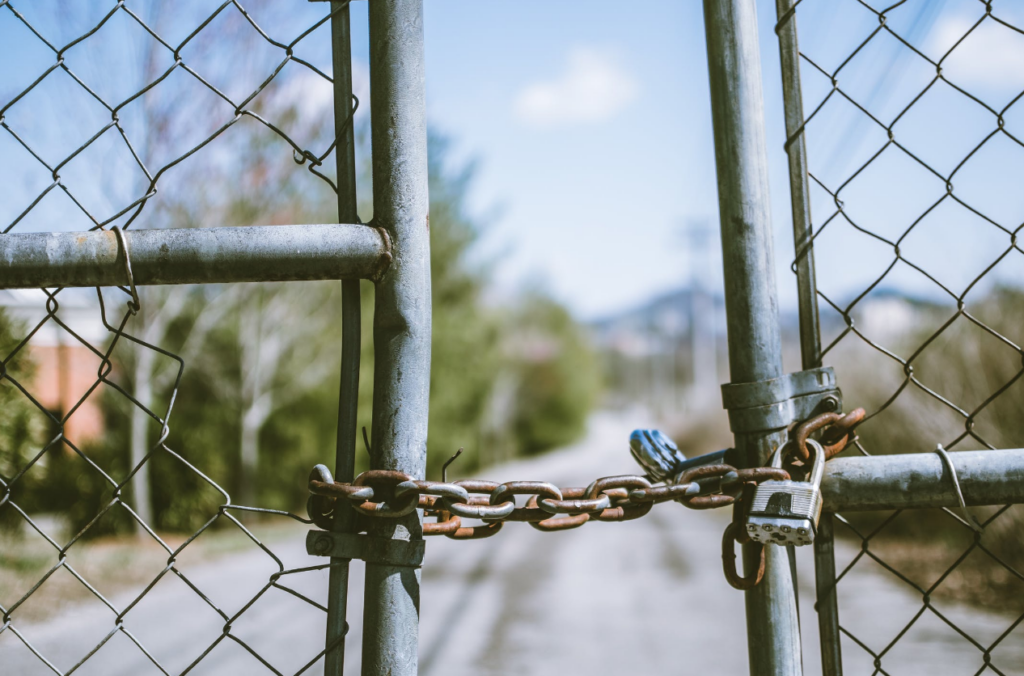
Y’all know what tsunamis are full of?
Trash, junk, dead things, garbage, fecal matter, disease, and pretty much anything dangerous, deadly or disgusting.
Literary tsunamis aren’t much different…except they keep coming bigger and bigger with no sign of stopping (short of unplugging the Internet).
Gatekeepers & The Literary Tsunami
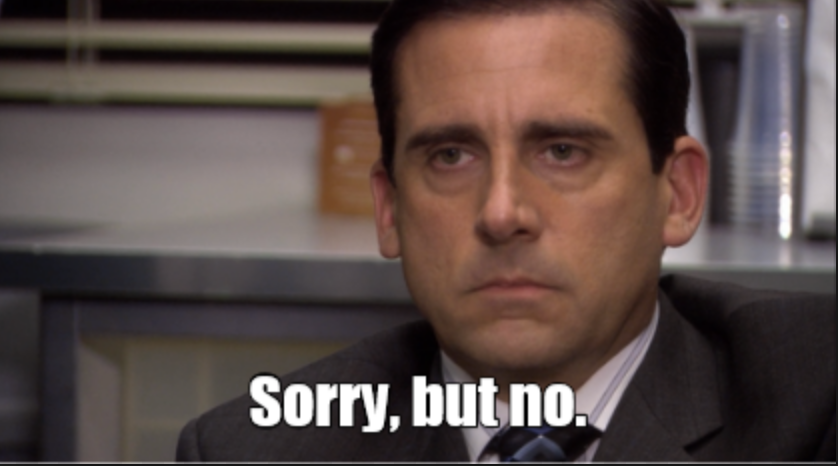
We NEED gatekeepers. Just last year, there were over a million novels self-published.
Before the digital age, publishers only released a certain number of books per year per genre, and for good reasons.
Limiting titles gave them time to perform proper editing and proofing. It also prevented over-saturating any one genre, or flooding the market with too many choices.
Perhaps the author querying actually had a fabulous vampire book. Problem was, the agents knew they wouldn’t be able to sell it to an editor, because the publishers had already bought five other vampire books.
Agents don’t make money unless an author makes money. For an author to make money, her books have to SELL.
It was already a challenge to sell a vampire book with three, five or even ten other competitors that same year.
What about now? With three hundred other vampire books released in the same year? Or three thousand?
One of the most glaring weaknesses in the modern publishing business model is the lack of stopgaps to control the flow.
Kristen Lamb (quoting herself)
We cannot keep dumping the slush pile on readers and task them with hooking the book we all want to read.
Why not put them in a boat and ask them to reel in a nice swordfish to hang on the wall while riding on a tidal wave of cars, homes, and overturned septic tanks?
Readers as Gatekeepers
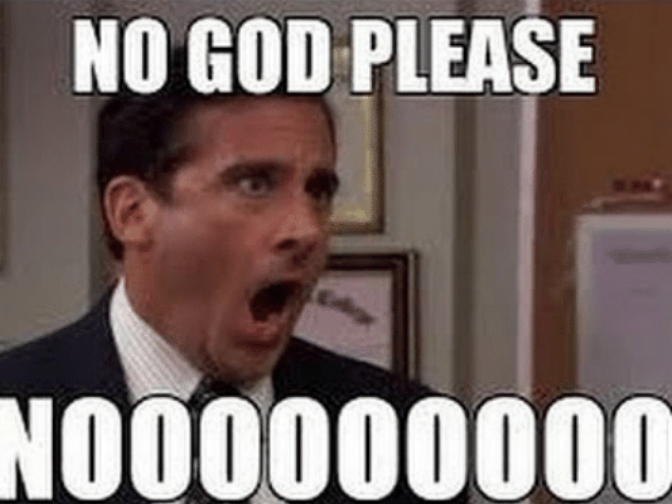
Let’s suspend reality for a moment and pretend that the million books self-published in 2018 were all the same quality as books in 1987. Cool.
But it’s still over A MILLION NEW BOOKS.
In the comments on the last blog, there was a lot of discussion about readers as gatekeepers. I totally agree that the old way of gatekeeping was far from perfect. A lot of excellent books (authors) fell through the cracks.
Self-publishing has breathed new life into old genres and resurrected the short and long forms from the dead (e.g. poetry, essays, short stories as well as epic high fantasy, epic historical, epic any story that requires 120,000+ words to tell).
Alas, despite all the good, we must face the bad.
There’s a reason the last runaway breakout novel was in 2012. I firmly believe the success of Fifty Shades of Grey spurred an explosion in self-publishing (the bad kind).
This Literary Power Ball Winner not only encouraged green writers to skip even learning the craft, it also attracted scammers, counterfeiters, and algorithm con artists.
All this aside, though, I find it more than a little appalling that we (writers) should expect our consumers to be in charge of quality control.
It’s like opening a restaurant, and instead of the owner checking inventory, he makes it the customer’s responsibility to ensure the chicken they ordered isn’t rotten.
Author Gatekeepers & First Line of Defense
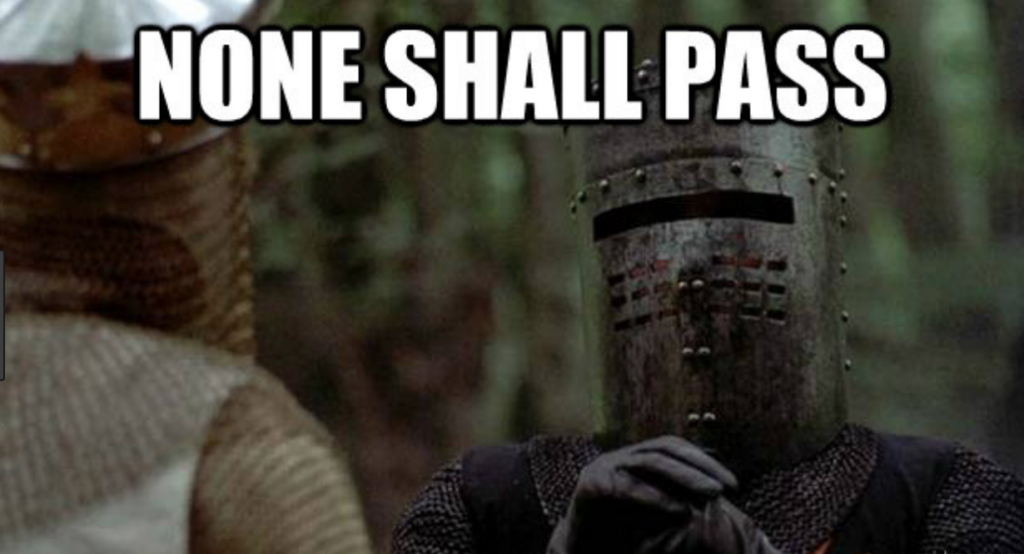
WE are the first gatekeepers. It’s OUR duty to learn our craft and create a product worthy of a spot in the marketplace. Authors hold a moral obligation to make certain we’ve done all we can to ensure our product is fit for reader consumption.
Anyone who’s a new (pre-published) author? Take classes, read craft books and study writing blogs. Get professional feedback. Trust me. You’ll save time and money by learning how to write well.
For those who self-publish? Self-publishing means you’re the publisher and you make all the profit, but also incur all the expenses.
***Just so you know, editing and proofreading are two completely different things.
There are various types of editing we might need—substantive editing, developmental editing, line-editing, etc. This is NOT cheap (though it is a business expense).
Y’all can look here for the industry standard rates. Make sure to check websites and organizations who keep track of scammers and seek recommendations from people you trust,
Normally, I’d recommend Preditors and Editors, but they’re rebuilding their site. In the meantime, y’all can refer to The Science Fiction Writers Association’s Writer Beware page.
Editor Gatekeepers
An excellent editor can make all the difference in the world and keep us from publishing too soon.
Editing will be expensive if your MS requires a lot of substantive or developmental editing simply because it takes incredible skill, patience and TIME to repair flawed plots or faulty character arcs.
Keep in mind that it takes an average of 12-15 hours to read a book. This is the time it takes to read a fully polished work.
With a draft, we (editors) have to slow down…a lot. And, when I edit, I will read that book at least three times. This is why I rarely do long edits. Most writers aren’t prepared for the expense…and I’d also rather play in rush hour traffic.
Granted, there are ways to mitigate this cost.
Sure an editor can fix typos, punctuation, subject-verb disagreements, remove echoes, repair punctuation, and evict passive voice, but that only makes the bill that much bigger.
Kristen Lamb (quoting herself again #NotWeirdAtAll)
Knowledge is power, and skill is a GIANT EDITING DISCOUNT.
Publisher/Mega Author Gatekeepers: The Next Line of Defense

I made this suggestion years ago, but it seems the only one to somewhat listen to this suggestion has been Audible (which is Amazon-owned).
Our author brand is our lifeline. A brand is any time a name alone drives sales. Traditional publishing is in big trouble, but they do have a way to recover. They still own almost all the current household brands.
My suggestion?
Ditch the ghostwriters/’coauthors’ approach and start authentically investing in the next generation of authors.
Thus far, in my POV, publishers have just been been devaluing their mega-brands and mega-franchises.
In an effort to keep pace with Amazon, the remaining publishers have been using ‘coauthors’ to pump out a gazillion titles all bearing a household name.
Sometimes, this ‘coauthor’ gig means the mega-author oversees the book and the process (e.g. James Patterson). Other times, the ‘coauthor’ is pretty close to a ghostwriter (unless Robert Ludlum has been sending messages from the other side since he passed away in 2001).
The problem isn’t necessarily with using a known brand to help sales. Rather, my criticism has to do with presentation.
If you look at the covers, these books are continuing to build brands that are already household names, while the writer (who probably did most of the work) earns only a small spot at the bottom.
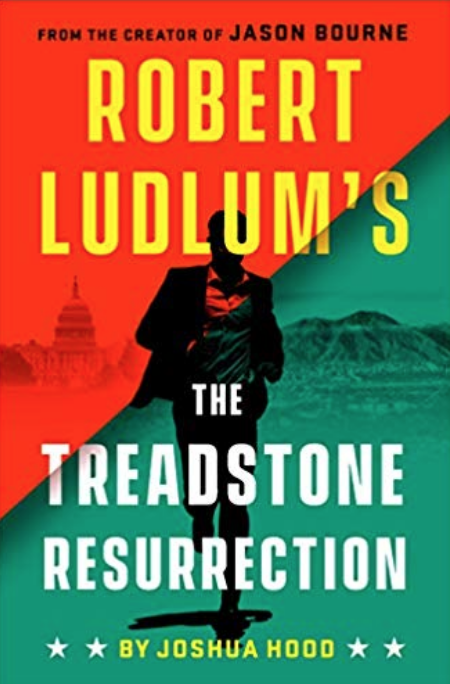
Robert Ludlum passed away eighteen years ago. He doesn’t need anymore help building his name. But Joshua Hood? Joshua sure could use a break.
Same with this book (below). The cover ALREADY states James Patterson is The World’s #1 Bestselling Writer. Great! So why not throw Brendan Dubois a bone? Too much to ask?
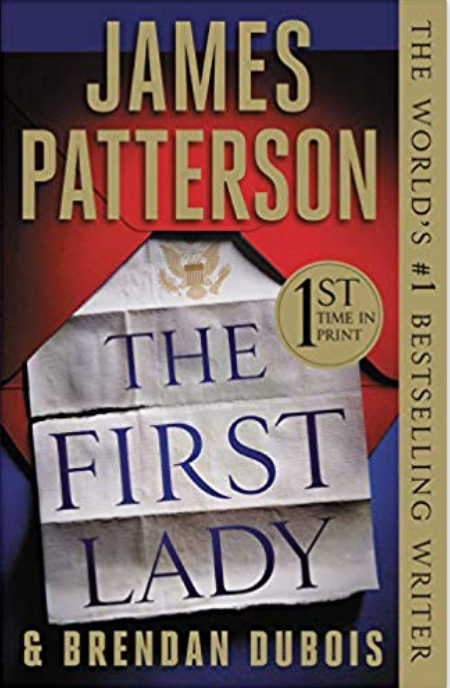
Granted, they’re doing a little better. This is the latest James Patterson and we can actually see the coauthor’s name.
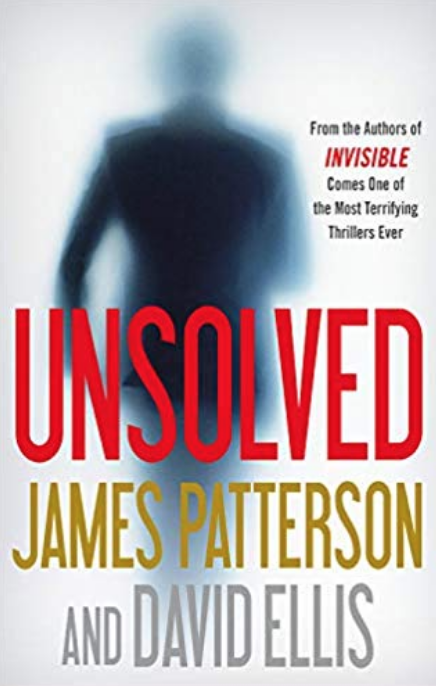
What if there was a way to maintain/build James Patterson while simultaneously building/grooming David Ellis to one day be just as big as Patterson?
Wait, there is! I blogged about it in 2012.
Designer Publishing
My idea is an all-round winner for all. The mega-authors maintain their legend status and use their influence as a nursery to grow the next generation of household names.
Legacy publishing can put out quality books, revitalize their stable of authors, and make readers super happy.
My main gripe with the current pseudo-ghostwriting approach is that there’s no solid consistency. I never know what I’m going to get.
For instance, I used to read a lot of James Patterson books. Unfortunately, it got to the point that the voice (and even quality) varied so vastly from book to book that I simply gave up. I didn’t have time to mess with a grab bag approach.
As to Ludlum, when a monarch dies he/she passes on the crown. In publishing, why should a mega-author get to keep his or her ‘crown’ forever, even after leaving the mortal coil?
Admit it. Kinda unfair. Okay a LOT unfair.
If Kylie Jenner Can Do This, New York Can
If Kylie Jenner can put her brand on everything from tooth whitening strips to lipgloss to clothes, then NY can do something similar.
Use brand trust in a good (modern) way.
The Slush Pile Sorting Hat is a disaster, and Jason Bourne only has so much mileage left. Use the big fish to protect the little fish until they can get strong enough to thrive on their own.
Work Smarter Not Harder

Audible is doing it. If they can have a Reese Witherspoon Book Club, then why can’t traditional publishing have a Stephen King Masters of Horror Club?
***Not that I am dissing Reese Witherspoon’s taste in books, but I want to read what makes Gillian Flynn, Tana French, Neil Gaiman, or J.K. Rowling stay up all night reading.
Anyway, agents locate the books and pitch them to the mega authors (or their agents). Then, the mega-author gets to say yay or nay on a book they’re endorsing.
The new authors have the honor of landing THEIR books in a premium line. What’s better is that the new author has a far greater chance of selling a lot of books.
Bookstores can even shelve these designer lines in the same areas to make it easy for readers to discover a new favorite author.
With a nudge from a big brand, the new author can build his/her own name, brand and reputation until it’s successful.
These designer lines could include everything from short works (novellas) to longer works (series). The main difference would be the unknown author’s name would be in GIANT font.
The literary gene pool gets fresh new author DNA. The megas make a percentage off of royalties in their line (and can also write their own books). And the best news?
We now have a new form of gatekeepers, so readers will have at least ONE place they can look for a quality read. Algorithms are vulnerable to fraud and can be gamed. This method, however, allows authors to once again earn a respected title.
I have more ideas, but we’ll leave those for another day.
Suffice to Say…
Self-publishing can continue on. If our MS doesn’t make it past the gatekeepers then we can see how it fares self-published.
But the idea of reaching out to trusted names and letting them assist as gatekeepers holds a lot of appeal (does to me).
Just reimagine Oprah’s Book of the Month. Make it J.K. Rowling’s Book of the Month. Can’t hurt to try. The mega-authors then can be part of the solution to this growing problem.
Seriously, if I am a trusted brand, I’d be really picky who received my endorsement. And I’m fairly certain that if I recommended great new books/authors? My existing fans would love me for saving them from the tidal surge…the glowing one that’s teeming with three-headed fish books.
What Are Your Thoughts on Gatekeepers?
I LOVE hearing from you. Maybe y’all have some ideas to throw out about how we can add some sort of quality control. I know the old way had a lot of flaws but this new way is giving me apoplexy.
Let’s crowd-source this problem, LOL. It’s certainly an issue that needs to be remedied.
***Btw, if you look to your right in the sidebar, we have some brand new classes coming up. Bad Lamb Academy is replacing W.A.N.A. so I can merge all the sites in one spot. And, since I am a well-known troublemaker, Bad Lamb works.
Refuse to behave.
Anyway, I’m teaching a BRAND new class about How to Write Mystery, Suspense & Thriller this coming Thursday, and I recruited a fabulous instructor to teach an Introduction to Science Fiction on Friday. We also have more classes next week. Recordings are included for free.
Y’all will meet Maria Grace next post! She’s not only a brilliant craft teacher. She’s published twenty-three novels and is crazy good at the business of this business.
Short notice, I know. But we’ve been working eighteen hour days moving everything into one spot to make it easier on everyone.
Just FYI, I’m extending the CLEARANCE sale a little longer, until new classes begin. We need to test the new Event Espresso license and this site’s functionality (we’ve updated everything). If you need a good plotting or character class, NOW is the time to get it.
I have to free up space on our servers. All my classes are detailed and average 2-3 hours. These are On Demand classes you can watch at your leisure and have fun while you learn (for classes, scroll down).
****For NEW classes, look in the footer.
This not only is to help you guys get the training you need (affordable summer school), but it will open up room for the new recordings of new classes.
Please take advantage of the sale! I rarely drop prices this low.
After July 17th, these classes will no longer be for sale (and will be slated for deletion).
Some, I will offer again later in the year. Others? I won’t be offering again the same way (will be likely splitting them into two classes because they ran long).
Thanks so much for your support!
ON DEMAND CLEARANCE ON BRANDING & CRAFT CLASSES!
Available until July 17th, 2019
CLEARANCE Branding, Social Media & Sales Classes
ON DEMAND T.K.O. BUNDLE: Branding, Blogging & Sales for Authors
$99 (Regularly $165)
ON DEMAND Brand Boss: Branding for Authors
$35 (Regularly $55)
ON DEMAND Sales for Writers: Sell Books Not Your SOUL
$35 (Regularly $55)
ON DEMAND Blogging for Authors
$35 (Regularly $55)
Also Offering:
ON DEMAND Social Schizophrenia: Building a Brand WITHOUT Losing Your Mind
$35 (Regularly $55)
CLEARANCE Craft Classes
Plot Boss: Writing Books Readers Want to BUY!
$35 (Regularly $55)
Fiction Addiction: The ‘Secret’ Ingredient Readers Crave
$35 (Regularly $55)
Story Master: From Dream to DONE
$35 (Regularly $55)
The Art of Character: Creating Dimensional ‘People’ in Fiction
$35 (Regularly $55)
Beyond Bulletproof Barbie: Creating Strong Female Characters for a Modern World
$35 (Regularly $55)








24 comments
7 pings
Skip to comment form
Is the joke on is with this post?
It’s always bothered me that the NY publishers spend most of not all of their advertising budget on authors such as Patterson or Rowling who don’t need it…they have a loyal following who will buy their book as soon as it hits the shelf…or before. Why not spread that budget around and make stars out of a few deserving mid-list authors??? Sigh…
I edit books. I weep over the lack of basic writing skills I see every single day. 🙁 But it’s worse than that. A lot of readers apparently can’t tell the difference between good writing and bad; they rave about something I know is poorly written and inadequately edited (or not edited at all). A lot of authors don’t want to get better. They don’t/ won’t learn and consequently never improve. They keep publishing the same garbage, book after book. It’s so depressing.
I’ve been writing for eons, yet I still make the same errors when making my first draft. I downloaded Grammarly (the free version) and so far, so good (though not nearly as stellar as the paid upgrade). How do you feel about Garmmarly? Would it be worth upgrading?
You make an excellent point. I think one of the main problems with publishers is they’ve become too afraid to take risks. They stick with the tried and true names because they know that will make them money. We’re seeing Disney do that with all their live action remakes.
Another thing that doesn’t help is the fact writers feel like they have to constantly produce to keep relevant with the algorithm. I see authors talking about publishing books every month or every other month and I wonder who is beta reading them? Are they hiring an editor? How are they pushing out books that fast? I mean, maybe the difference between me and them is I have chronic illnesses so I sometimes only have enough energy to do the basics during the day.
I like your ‘big name recommends’ idea, but I am not holding my breath for those in power to get all sensible. But we can always hope, right?
It always peeves me (a self-published writer), when people write off all self-published books as unreadable trash. But heck, if there’s 50 piles of poo for every nugget of gold, I can’t blame someone who’s bought what turned out to be several piles of poo for assuming that the gold doesn’t exist. Unfortunately gold takes longer to produce than poo does – ask any alchemist!
I want to write a great read. Two years in, 5th draft and then the edits. My goal – happy readers. If only ten people read it and nine people love it, then I’m happy. If 1,000 people read it and only nine people love it, then I’m not.
Money? For me, it doesn’t come into it. However, I do believe that if the book is really good, it will find readers, “The Martian” comes to mind, and readers tell others, and the snowball gets bigger until money also comes along. Making money is proof you did something that worked.
Failing to get happy readers should be proof that writing is at best, a hobby that makes the writer/hobbyist happy. And if it makes you happy – good. Don’t stop.
If making money makes you happy… well, you have my sympathies. Good luck with that.
Author
I agree on all counts, but ‘The Martian’ is kind of a non sequitur. Weir blogged that book and crowdsourced the chapters so it grew a huge following as it was being written. It didn’t need to be discovered like most books. And again, that was before there were a million + books being self-pubbed. I don’t care if people write for love or money or whatever. But this system is bonkers. I’m a READER, too and was a reader first and I am getting sick and tired of crappy books.
Wow. I didn’t know that about Weir. I’d been sold an entirely different truth. (Lie)
{But this system is bonkers. I’m a READER, too and was a reader first and I am getting sick and tired of crappy books} Yeah. Couldn’t agree more. Me too.
Love your work.
Oh, the powers-that-be need to listen to your logic! They need to snap it up! Of course, by promoting big names, people line their pockets, and therefore taking a ‘risk’ (as they perceive it) on someone in the midlists could mean a pay cut. And that they don’t want that, no siree! Sorry, I have a jaded view.
Another thing that concerns me about those self-published books that are full of bad grammar etc, is the impact of reading on the next generation. Instead of reading Austen (or whatever classic appeals), these days kids are reading Wattpad (and whilst there may be good reads on there, Austen they are not). What must this logically lead to? Personally, I can’t bring myself to contribute to that train wreck.
There’s so much to learn, and there are joy and satisfaction in that. Isn’t that what being a writer is about? If you love the words you write enough, wouldn’t it make sense to learn your craft so they can be the best version of themselves? Even if that takes years? And then, if you’ve put love into the whole writing process (including what you’ve learnt) shouldn’t that resonate with readers?
Although having said that, there most certainly is a worthwhile self-published community out there, the trick is finding them because those are authors I want to support.
Okay, here it is. Kristen, I’ve been reading your blog for many years, ever since I became a writer. I got ten self-pubbed books out there, and am doing financially fine–I can live off my writing. So I can vet this series system as long as the books are written to market. I came together with a community of like-minded authors who are also making this work for them. They write fantastic books, and I’m always learning from them. I think that the market is simply changing. An editor complains in a comment above that readers LIKE some of those crappy books. Well, there you have it then–that IS the market. That’s what the market demands. What’s the point of publishing a book that’s been re-drafted and re-edited a gazillion times over 5 years if it ain’t interesting to anybody? The slushpile will bury it as soon as we put it out there. To me value is in reader appreciation. Also, drafting and re-drafting the same book over ten years is–IN MY VIEW–completely bonkders. Writers can’t develop skill that way. I always advise stop trying to make it perfect and just put it out there, then move on to the next project, it’s the only way to grow. Now, THAT BEING SAID…
I put ridiculous amounts of hours into honing the craft, and have been doing so for eons. When I’m not writing, I’m reading in my genre, and on craft. I’m also worried about the ridiculous amount of books being cranked out there like freaking fast food (even though I DO SEE THE BUIINESS MODEL behind that; and it would be fine if not for the crass quality issues).
I personally believe the age of the breakthrough novel is over. The age of the “universes” has begun. Readers discover an author they love, who writes in a certain “universe,” and they want more from that author month after month. Instead of selling 100 million copies of ONE book, these authors are selling 100 million copies of 100 million books (numbers just as examples, I don’t actually mean 100 million, LOL).
Problem is indeed, and remains, all the bad books out there. But writing is hard word. When none of those will make millions, the people writing them will stop doing it, because most of them were just hoping to get rich fast. My two cents.
Whenever I consider purchasing an e-book, I check to see who published it. If its self published, I don’t buy it. Sometimes I get the sample, but rarely purchase.
I still like a printed book.
You are so right about newsletters typos and poor grammar. Some blogs also are not proof read.
Author
There are good self-published books out there. Word of mouth is how we find them. The problem, again, is that WE find them because we are writers/avid readers. But we are a small percentage of the reading population and NOT who makes the book go BOOM. Everyday people have to find it. And that is getting progressively harder.
The big boy publishers are starting to get lax, too. I can’t tell you how annoyed I was at spending $10 for a novella only to have a consistent misspelling/typo all throughout it. As a reader I wanted it money back. As a writer, I wondered where the 10$ went, because it obviously wasn’t towards editing.
Kristen, as always, an excellent article. However, I am here to deliver a nitpicker. You refer to the “lakes and rivers of Texas.” While I’m familiar with the rivers (I grew up at the mouth of the Brazos River in Freeport), I’ve always understood that Texas has only one natural lake within its borders. A number of manmade lakes, but only one that arrived here naturally. Since I call attention to books with characters sniffing cordite, an impossibility, I have to do the same with “lakes, plural” in Texas. Properly, it would be “lake and rivers… and fake lakes.” (Just yankin’ your chain…) Other than that, your article was spot on… Blue skies, Les
Author
LOL, Les. I ACTUALLY had in there how all our lakes/rivers are manmade, but then realized my Wiki on TX bodies of water probably wasn’t salient :D.
The problem with your designer publishing idea, IMHO, is it doesn’t go far enough. We are the digital era. We should be able to figure out how to reward quality writing with the light of public recognition no matter how deep in the darkness of anonymity it germinates. To me that means we need a complete farm system. From little league all the way up to the majors, we need not just gatekeepers, but avatars, guides who can show the way up to the next level. Maybe call it organic gatekeeping. I know I’m mixing metaphors wildly here, but my time is limited, so I just want to get this thought out. I don’t think the publishing establishment can be reformed. It’s too entrenched in its own financial ecosystem. The self-publishing industry is a great first attempt to break free, but it needs to go to the next level. Why can’t we hold an indie-publishing congress of some sort and try to get some of these great ideas implemented in our own space? Don’t we have our own mega-authors? Would they be willing to serve as avatars for quality writers on the rise? And here’s the thing. If not, why not? Is the short-term thinking driving traditional publishing so inherent to the competitive process it’s inevitable? Or is it an aberrant evolution we can overcome with new thinking? I just guess I don’t know why we’re trying so hard to save the dinosaurs, when we really ought to let them go extinct and work out a better future for ourselves.
Author
I’ve seen some attempts. For instance, a mega author goes rogue, opens his/her own indie publisher, then promises curated content. The problem has always been they were writers and not people adept at running a publishing business. Often their own books took top priority while the writers in their stable languished and really didn’t get much if any assistance.
I agree, this IS the digital age and we’re smart and we should be able to figure this out. My idea is just one of many. I started there because as big as Amazon is, NY still owns most of the household names so it would be a good starting point.
Then you know Amazon would look at that and do it better. Groom the rogue megas or the mega authors created in their model and do what I’m talking about here. Create Andy Weir Science Fiction Lines to shelve in those brick-and-mortar stores. The key I think is to start culling through the dreck and slot the not yet discovered talent under a trusted name.
Even if it’s a celebrity (e.g. Reese Witherspoon’s Book Club). There are a lot of actors who read and the fat part of the bell curve would look to a celebrity for what books they endorse. This would at least start a process of reinstating some sort of gatekeeping.
As it stands, capitalism really can’t work optimally because of the sheer volume being dumped on the market. Other than an author building a robust social media brand (ideally with a blog) and growing a platform, ads and marketing won’t move the needle because we are being buried in spam.
We can solve this problem, but we need to acknowledge the problem first.
I agree wholeheartedly with your post. Especially about how even traditionally published books are riddled with errors.
I love some of your ideas. We definitely need some sort of gatekeeper for self-published books. The bad ones are having a knock on effect on those who are writing good books. Alice M Fleury is proof of this, saying ahe doesn’t buy self-published books.
I have no idea how this would work, though.
Author
Only know if we try. We don’t know that it wouldn’t work, either :D. And sometimes just rolling with a new idea is what you need to spark the actual solution three or five steps down the line. But this holding pattern of ‘let’s pray it stops sucking’ is a vastly flawed approach.
Thanks for your thoughts. I appreciate the comments!
Briefly, due to the switch over from Createspace to Amazon, the software didn’t play nice (+ the errors I wanted to correct from my first publishing effort) in the immediate transition. Putting the ebook into a file Kindle would accept took time and a learning learning curve, but it was done last fall. In the upload it had to go through a process and guess what? Spelling errors I missed were caught and corrected. I doubt it is on the same level of a professional editor, but there was a “quality” control element that was not there before on that original publication. I don’t think the epublishers want a high number of negative reviews, or items taking up their servers that aren’t selling. This is all going to even out, eventually. I just want to still be in the game, which was why I keep going back to college, studying and reading. Gatekeepers are forming. The question is what kind of gatekeepers will there be? How much will be monitored and censored?
That’s a topic I’ve been scared to talk about. Mention gatekeepers and many indies will throw pitchforks at ya… I do think it’s needed. We swung from one extreme (all control to no control) and need to find the happy middle.
I think Amazon could realistically develop and AI that reads books and spots mistakes and then temporarily prevents them from being on sale until errors are fixed (it should be allowing for certain number of errors as margin of error, not stop a book with one grammar error). This would eliminate the most basic mistakes in books. So at least a bit of improvement.
I’d love to see more authors bringing up authors but it’s not gonna happen in Trad. Pub as they are too much focused on big names and that wont change.
BUT indies could do it and a great way to do that would be masterminds. Have 3-5 writers in one group meeting consistently, sharing advice, critiques and co-promoting each other. Maybe even co-writing. And that would be a rising tide floats all boats (in that group).
There could even be a website to help writers set up the masterminds… help facilitate them initially. It would be really cool I think. But I am not sure most authors are willing to do it. I’d be up for helping make it happen for sure tho.
Author
The old world of gatekeepers is vastly different though. They simply had a query letter and a manuscript and a bio that promised an author would a) be professional and b) could keep writing great books. These days authors can demonstrate they have a brand, a platform, can show sales records, that they already have more than one book published. The old gatekeeping was a complete shot in the dark, a craps shoot. The agents and editors had to blindly GUESS what would sell. They can’t claim that these days. There was a good reason ‘The Martian’ and ’50 Shades’ were offered deals. Agents can look to authors doing well now and possibly connect them to Amazon’s imprints.
NY HAD to look for the dark horse superstars because the old business model demanded MASSIVE preorders. But, with B&N gone and the new smart-stocking? Authors who have a number of titles and are selling well can query and demonstrate they are a sound bet (show their blog followers, newsletter subscribers and sales data from all the places their book is listed). Amazon, at the click of some keys can make a pretty sound business decision.
I believe a lot of indies are only indies because they were a bad fit for the old NY business model. An ‘indie author’ who ‘only’ sold 1000 books a month wasn’t interesting to a business that needed to move a hundred thousand books. Amazon, however, will happily cobble together a thousand authors who all sell 12,000 copies a year and blow that old number out of the park (12 million books). Even if we HALF that number and get 500 authors who sell 12,000 a year or 1000 authors who sell 6,000 a year that is still six million books. And THAT is a heck of a lot easier to find than that SINGULAR author who’s book will sell six million or twelve million copies. The math is far more favorable for Amazon to stockpile a lot of authors who ‘sell well’ and help them sell ‘much better.’
The new business model where Amazon really needs a lot of authors who sell well instead of ONE MEGA ROCK STAR is much more favorable to authors.
No reason, other than greed why Trad. pubs couldn’t do it now too. And hopefully Amazon doesn’t turn the same way eventually.
Looking forward to future articles! 🙂
[…] Add to all of these considerations this: according to a source cited on Kristen Lamb’s blog, one million books were self published las… […]
[…] this era where anyone can publish anything, Kristen Lamb makes a case for why we need gatekeepers, and why publishing is desperate for the next breakout […]
[…] https://authorkristenlamb.com/2019/07/gatekeepers-good-books-trophy-fishing-in-a-literary-tsunami/ “Gatekeepers have always served a crucial function, albeit a function we (readers) might not have […]
[…] Ultimately, I was confident new gatekeeping would emerge. […]
[…] As we’ve talked about over the past few posts, there are a million plus books being self-published every year, and climbing. […]
[…] question. Especially in the age of digital publishing, when a million plus books and climbing are published every year. Readers are drowning in the slush pile, […]
[…] The glut in the market has become unmanageable. In the early days of self-publishing and indie publishing readers could discover the gems, but now it’s too much. As I’ve mentioned more than a few times, there are now over a million self-published books launched per year. […]